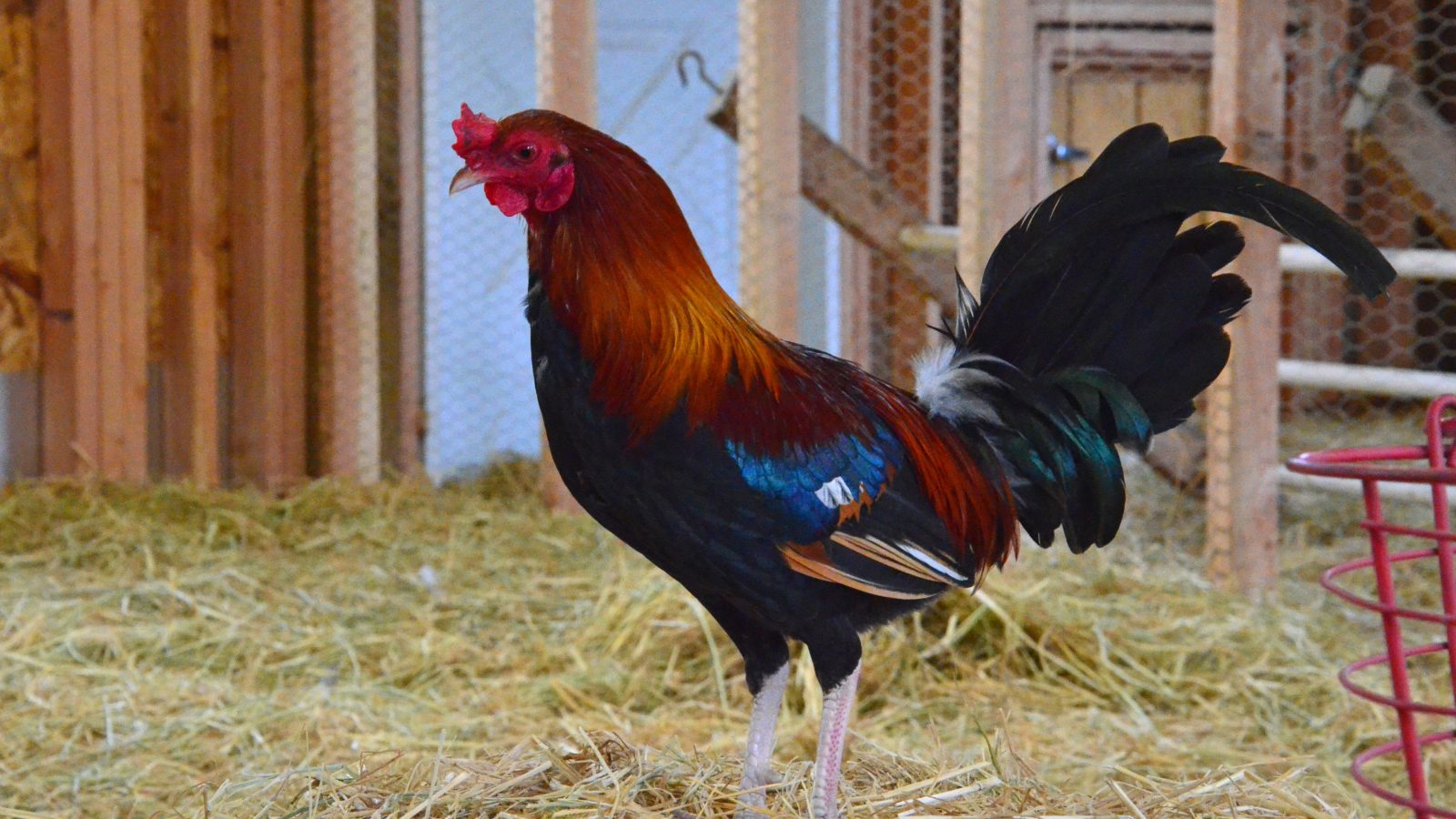But, luckily for our rooster friend Al Pacino, it was. When a resident of Ventura, California, saw the little bantam walking down the street of her residential neighborhood, she caught him and went from house to house looking for his home. At one residence, a woman announced, “Yes, that’s our rooster. We don’t want him.” Then, she shut the door.
This good Samaritan unexpectedly found herself responsible for a rooster, and she wasn’t about to let any harm come to him. She was an adopter for the rescue group Beagle Freedom Project, so she reached out to them for suggestions. Beagle Freedom Project was familiar with Farm Sanctuary, and they dropped us a line. Al Pacino was soon on his way to our Southern California Shelter, where the barn doors were open to welcome him.
Rejection and abandonment are all too common for roosters, and the growing popularity of backyard flocks has only made the situation worse. To many, raising a small flock of chickens for eggs or simply as pets seems like a great idea. It’s brimming with the DIY spirit, and it appears to not support the cruelty of factory egg farms. What most don’t realize, though, is that the chicks they purchase from feed stores or catalogues come from industrial hatcheries. These huge facilities hatch millions of chicks each year and ship them in cardboard boxes when they are just one day old — a harrowing journey that can last up to 72 hours.
The vast majority of buyers want only hens. Roosters don’t produce eggs, and keeping them is prohibited by most city ordinances. Invariably, about half of all chicks born at hatcheries are male. Facilities employ various methods of disposal. Sometimes they grind live, conscious chicks into fertilizer or dump them into plastic bags to die slowly of suffocation or exposure. In other instances, producers use male chicks as packing material, stuffing them into boxes of female chicks to fill empty space. A purchaser may think she’s received an extra hen, but as her chicks grow into adult chickens, the early morning “cock-a-doodle-doos” reveal the truth: She has an illegal rooster on her hands.
Countless unwanted roosters are dumped at municipal animal shelters, where they may be euthanized or sent to auction and then to slaughter; others are set loose in the wild or on city streets to contend with predators, traffic, harsh weather, and gnawing hunger. Life is hard, brutal, and short for these birds.
But, that won’t be the case for Al Pacino. Now at our Northern California Shelter, he is settling in and learning the joys of shelter life. As a young rooster in the flock, he doesn’t get to be in charge just yet, but he does have some special hen friends who make him very happy. What Al Pacino wants out of life is simple: a safe place to live, enough to eat, and companions to dote on. And that’s just what he’ll get for the rest of his days.






